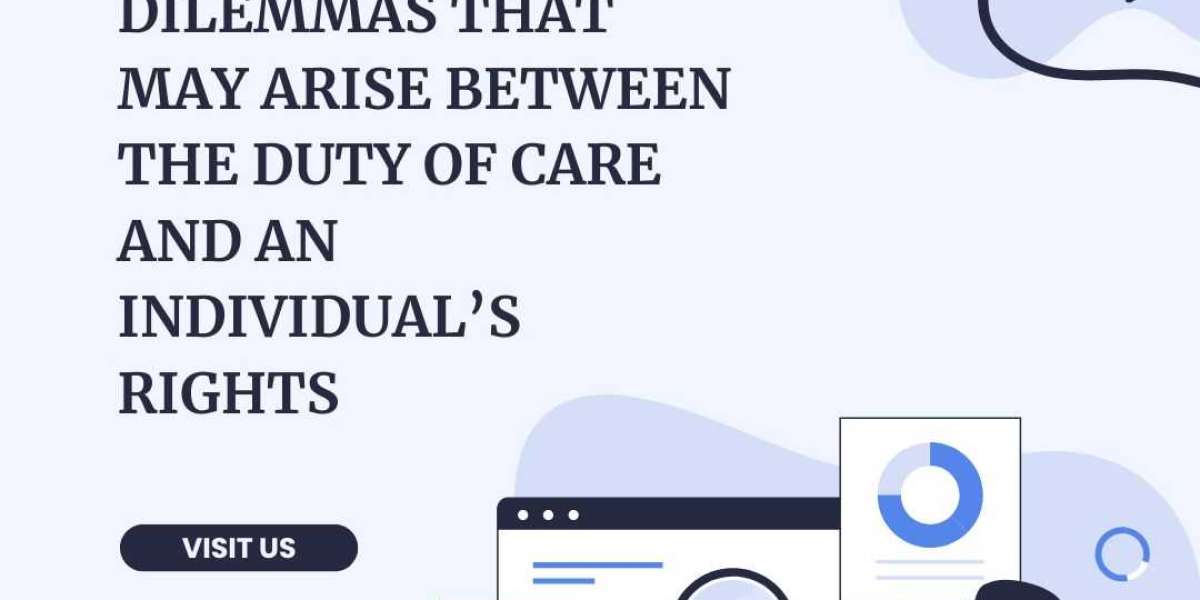Introduction
We all have rights—individual rights that grant us the freedom to make decisions, express ourselves, and live our lives as we choose. But what happens when one person’s freedom interferes with another’s safety? This tension between duty of care and personal freedom is not just theoretical; it's an issue that plays out in our everyday lives, from healthcare to workplace policies and even our personal relationships. It’s important to describe dilemmas that may arise between the duty of care and an individual’s rights, as these conflicts often force society to navigate complex moral and legal challenges.
In a world where both rights are paramount, how do we balance them? Can there ever be a perfect solution, or are we destined to always walk this tightrope? Let’s dive into this complex issue and explore how society can address these conflicts while respecting both rights.
What is Duty of Care?
Before we can fully grasp the conflict, it’s important to first define duty of care. This legal concept refers to the responsibility one party has to avoid causing harm to another. Whether in healthcare, the workplace, or social settings, duty of care ensures that one’s actions (or lack of action) do not put others at risk.
Legal Implications: When a person or organization fails to uphold their duty of care, they may be held legally liable for any resulting harm. This could mean anything from a company being sued for unsafe working conditions to a healthcare provider being held accountable for malpractice.
In essence, duty of care acts as a safeguard, ensuring that individuals and organizations act responsibly to prevent harm to others.
What is Personal Freedom?
On the flip side of the coin is personal freedom. This refers to an individual’s right to live their life as they see fit without undue interference. It’s a cornerstone of democratic societies, where personal autonomy is celebrated. From the ability to make medical choices to how we express ourselves, personal freedom is an essential aspect of our lives.
However, personal freedom is not without its limits. When does one person’s freedom begin to infringe on another’s rights? This is where the tension between duty of care and personal freedom becomes apparent.
The Conflict Between Duty of Care and Personal Freedom
It’s easy to see how these two concepts can come into direct conflict. Consider the following example: a government mandates masks during a pandemic, citing the duty of care to protect the public’s health. However, some argue that this is an infringement on personal freedom. The question arises—how can we protect public health while respecting individual autonomy?
Examples of Real-Life Conflicts:
- Workplace safety: Employees may feel that their employer’s safety measures (like mandatory vaccinations) violate their personal freedom.
- Healthcare decisions: Medical professionals may feel obligated to intervene in a patient’s decision if it’s believed the patient’s choice could lead to harm, such as refusing life-saving treatment.
The question is: how do we navigate these situations without undermining either principle?
Key Legal Frameworks Guiding Duty of Care
The legal system plays a vital role in resolving these conflicts. Various frameworks exist to ensure that duty of care is upheld, such as tort law and health and safety regulations. These laws are designed to prevent harm and ensure that individuals and organizations are held accountable for their actions.
Balancing Duty of Care with Personal Freedom
So, how do we strike a balance between the two? This is where ethics comes into play. Ethical frameworks help guide decision-makers in assessing whether it’s acceptable to impose limits on personal freedom to prevent harm.
When making such decisions, it’s important to consider:
- The level of harm that could occur
- Whether there are alternative methods to ensure safety without infringing on personal freedom
- The societal context and public opinion
It’s all about finding a compromise where both safety and freedom are protected.
Duty of Care in Public Health
A perfect example of this conflict arises in the context of public health. During a health crisis, such as a pandemic, the government may enforce certain measures (e.g., quarantines, vaccination mandates) to protect public health. But, how far can the government go without violating individual rights?
Case study: During the COVID-19 pandemic, nations worldwide grappled with this issue, trying to balance public safety with individual rights. While lockdowns and mask mandates were seen as essential by many, others viewed them as violations of their personal freedoms.
Duty of Care in the Workplace
Workplaces also present a unique challenge in balancing duty of care with personal freedom. Employers have a duty to protect their employees’ health and safety. However, employees have the right to make decisions about their own health.
For example, a company may mandate that employees receive a flu vaccine, but this could be seen as a violation of personal freedom. Employers must navigate this conflict by ensuring that their policies are not overly intrusive while still fulfilling their legal obligations to protect employee health.
Personal Freedom in the Context of Law
In a legal context, personal freedom refers to the rights individuals have under law to make decisions about their own lives. From the right to free speech to the right to privacy, personal freedom is a key tenet of human rights law.
However, the law also places limits on personal freedom to protect others. For instance, the right to freedom of expression may be limited if it causes harm to others (e.g., hate speech laws). Similarly, the right to privacy may be limited in cases of national security or public health concerns.
Case Studies: Resolving Duty of Care and Personal Freedom Conflicts
Let’s take a look at some real-world examples where courts have had to balance duty of care with personal freedom:
- Healthcare: In cases of mental illness, courts often decide whether a person’s autonomy should be overridden to ensure they receive treatment.
- Workplace safety: There are cases where employees have challenged workplace safety regulations, arguing they violate their rights to freedom of choice.
- Public policy: Courts have also weighed in on government-mandated public health measures like quarantine orders, often striking a balance between the public’s right to safety and personal freedoms.
These cases highlight how difficult it can be to find a fair balance between duty of care and personal freedom.
Ethical Considerations in Balancing Rights
Ethics plays a significant role in resolving conflicts between these two rights. Ethical theories such as utilitarianism, which seeks the greatest good for the greatest number, can often justify actions that limit personal freedoms for the sake of public health or safety.
However, deontological ethics, which focuses on the inherent rights of individuals, may argue that certain freedoms should never be violated, regardless of the consequences.
The Role of Government in Protecting Both Sides
Governments often find themselves in the position of balancing both rights. By enacting laws and regulations, the government plays a key role in protecting both the duty of care owed to society and the personal freedoms of individuals.
Challenges in Finding a Resolution
Despite the best efforts of lawmakers and courts, finding a resolution is often difficult. The core challenge lies in the differing values of society and the ever-evolving interpretation of rights. It’s a complex issue that doesn’t have a one-size-fits-all answer.
Future Considerations: How to Evolve the Law
Looking ahead, the legal landscape may evolve to better balance these rights. As societal norms change and new challenges arise, laws may become more flexible, allowing for a better balance between duty of care and personal freedom.
Conclusion
In the end, the debate between duty of care and personal freedom is a fundamental issue in society. It forces us to confront the limits of individual autonomy while ensuring public safety. As we navigate this tension, it’s crucial that we continue to have open discussions about how to find a fair balance that respects both rights.
FAQs
What is the difference between duty of care and personal freedom?
- Duty of care is the legal obligation to prevent harm to others, while personal freedom refers to an individual’s right to make choices about their life.
How can duty of care conflict with personal freedom?
- Duty of care may require imposing restrictions on individual freedom to protect others, which can lead to conflicts over autonomy.
What is the role of government in balancing these rights?
- The government plays a key role by enacting laws that protect both public safety and individual freedoms, often through regulations.
Are there any legal precedents that address this conflict?
- Yes, many cases in healthcare, workplace safety, and public health law have addressed conflicts between duty of care and personal freedom.
How can we ethically balance duty of care and personal freedom?
- Ethical frameworks, such as utilitarianism and deontology, help guide decision-making when balancing these two rights.








